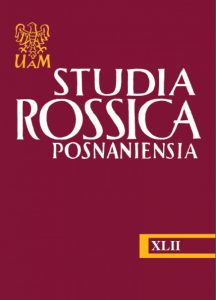Формы реализации пропозиционального аргумента в русских предложениях с ментальными глаголами: „соблюдение”, „компрессия”, „расщепление”
Forms for realizing propositional argument in Russian sentences with a mental verb: “observance”, “compression” and “splitting”
Author(s): Aleksander KiklewiczSubject(s): Theoretical Linguistics, Applied Linguistics, Philology
Published by: Uniwersytet Adama Mickiewicza
Summary/Abstract: The subject of the article is the mental verbs (verbs of knowledge, understanding and thinking) of the modern Russian language, treated in terms of syntactic valence. The author examines the grammatical forms of the realization of propositional argument in sentences with mental verbs with the predicate-argument structure P (x, q). The forms of representation of propositional argument are divided into three types: observance, compression and splitting. The author shows that in this area we have to deal with an analog reflection of the propositional structure, or more or less a compression of proposition argument, or its dismemberment and doubling of its syntactic position. The author takes into account the regularity of the implementation of each grammatical form, quoting the relevant quantitative data.
Journal: Studia Rossica Posnaniensia
- Issue Year: 42/2017
- Issue No: 1
- Page Range: 177-186
- Page Count: 10
- Language: Russian

